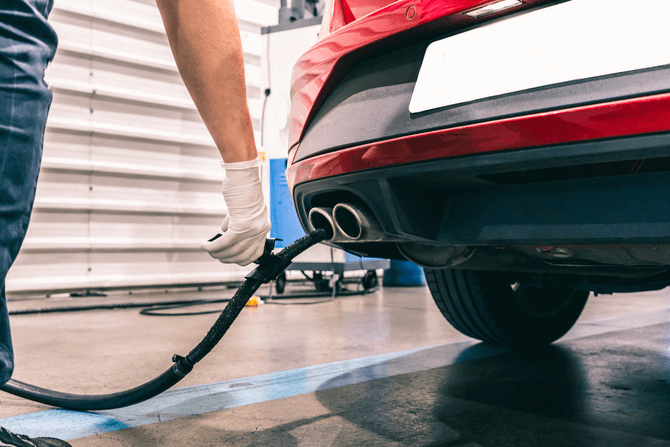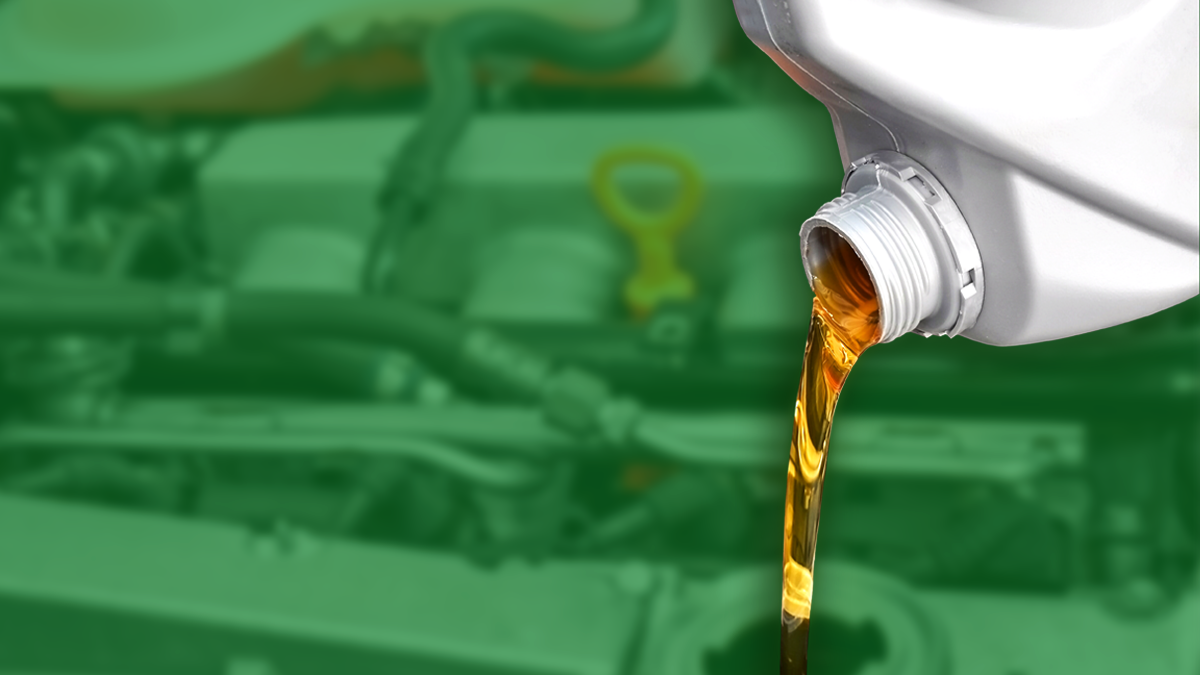Since vehicles have a significant impact on our environment, car manufacturers strive to comply with ecological standards. One of the most common and important regulations is a car emission test that measures the volume of fumes exhausted by a vehicle. Vehicle emission inspections in the US have some specific features that car enthusiasts should be aware of. We at ClearVin are here to uncover the topic in detail.
As a reputable VIN data provider, ClearVin covers a lot of essential vehicle details. Among the car’s specifications, title and ownership histories, accident records, and much more, you will find the results of the vehicle emission test. Run a VIN lookup with us and get accurate car information with a few clicks or smartphone taps.
What Is an Emission Test on a Car?

According to data from the U.S. Environmental Protection Agency, transportation is the reason for 29% of all greenhouse gas emissions. That is why automakers around the world need to follow strict car emission standards set by governments to help solve the issue.
Car emissions regulations in developed countries force manufacturers to improve filters for vehicle exhaust. This allows for better results in vehicle emissions, with far less pollution. Therefore, most cars on American and European roads are more eco-friendly today.
Vehicle emission inspection has become a way to test the automobile’s exhaust fumes. The main point is to verify that vehicle emissions don’t exceed a predefined volume that is relatively safe for the environment.
Specialized car emissions testing centers conduct exhaust fume assessments by connecting a tool to the vehicle’s exhaust pipe. When the engine is running, this tool analyzes the exhaust gasses to measure levels of harmful elements such as carbon monoxide, hydrocarbons, and nitrogen oxides.
When a car emits too many pollutants, according to the vehicle emission inspection, the car owner needs to fix the auto exhaust system or adjust it to lower the emissions.
As a rule, most modern cars less than 10 years old can pass emissions tests easily and quickly. However, if the vehicle is old or not well maintained, it might need significant repairs to meet vehicle emission standards.
Because the total number of vehicles in the world is constantly increasing, eco-friendly automotive technologies are incredibly important to implement now, as is following vehicle emission regulations and norms.
Why Are Vehicle Emissions Tests Necessary?

After the vehicle emission test, you’ll get a paper showing the gas analysis results. You’ll then check these against standard values to see if the vehicle is environmentally safe.
Exhaust gas analysis does more than check for toxicity. Modern devices also measure oxygen levels and air excess ratios. These readings indicate the engine’s health and can uncover issues with an engine or vehicle emissions control system early. The composition of car exhaust gasses depends directly on the engine’s condition. For an experienced service station employee, this information will be enough to draw a conclusion about the operation of the ignition system.
The engine’s efficiency depends on how completely it burns its fuel and is determined by the following parameters:
- the ratio of air and fuel
- the thoroughness of their mixing
- the efficiency of the pre-compression of the mixture charge
- ignition performance
When engine systems become imbalanced, their efficiency drops, and the levels of combustion by-products change. By examining car exhaust gasses, service station experts can gather vital information about the vehicle’s condition. This diagnostic process aids in making the car eco-friendly and fixing any functional issues that could lead to accidents.
Vehicle emissions tests also help ensure a car runs efficiently and does not waste fuel. If vehicles are not well-maintained or emit too many pollutants, they might be using fuel inefficiently, causing higher consumption and more emissions.
Through vehicle emission inspection, it is possible to spot inefficient cars that need maintenance or repairs to perform better and consume less fuel. This saves drivers money and reduces overall consumption, while also benefiting the environment and air quality.
Last but not least, a regular car emission test will help a driver avoid fines and issues with registration. For example, you will be prohibited from driving your vehicle legally if you do not undergo the vehicle emission inspection. The penalties may include a fine, vehicle registration suspension, or even vehicle repossession in some US states.
Everything You Should Know About Vehicle Emission Inspection in the US

Car emission tests are an important environmental regulation in the United States. It is aimed at reducing air pollution caused by different types of vehicles. The US government launched a program in the 1960s in response to the increasing levels of air pollution in major cities across the country.
Today, it is mandatory for all vehicles in certain states to undergo a regular vehicle emission inspection to ensure they meet the required standards set by the Environmental Protection Agency (EPA). In the United States, car emission tests are mandatory when you first register your automobile. Afterwards, there is an obligation to renew it periodically. You might also need a vehicle emission inspection when selling your car or transferring its title to someone else.
The most widespread type of a car emission test in the United States is known as the On-Board Diagnostics (OBD) test, which involves connecting a specialized device to the vehicle’s diagnostic port. You can also find other testing types like exhaust gas analysis, acceleration simulation mode testing, etc.
Most US states require car emission testing every one or two years for auto registration renewal. However, the testing conditions and frequency can vary from state to state. That is why we recommend checking with your local Department of Motor Vehicles (DMV) for specific car emission test requirements in your area.
For example, if you fail to undergo a vehicle emission inspection in a timely manner, you can be charged a $20 late fee in Connecticut. The local DMV explains that inspections are considered late if they occur 30 days after the initial due date. If there were issues and the car did not pass inspection, you will have to make the repairs and have it reinspected within 60 days.
Getting a vehicle emissions test is usually quick. You can typically have it done at most auto repair shops or state-run testing centers. Generally, you can just show up for testing without scheduling an appointment beforehand.
However, if you’re concerned about your car passing the inspection, it is a good idea to call ahead to ensure the vehicle emission testing center has the necessary equipment for your car and find out additional important details.
Preparation for a Vehicle Emission Inspection

To pass the car emission test smoothly, check what type of testing is needed for your vehicle model, then gather all the valid documents, including car insurance, a driver’s license, and proof of registration. Your car should also have a valid inspection sticker. If not, you must have it inspected before scheduling vehicle emission testing.
There are some technical nuances you should pay attention to. Make sure that your car is properly maintained and in good running condition. This includes regular service checks and oil changes, as well as addressing any warning lights or strange noises that may indicate a problem with your vehicle’s emission system.
To make sure your car complies with car emission standards, it’s also advised to inspect and replace any worn-out or malfunctioning components in advance, such as the oxygen sensor or catalytic converter.
In Conclusion
A vehicle emission inspection helps maintain clean air and keep the car exhaust system in good condition. By enforcing regulations and promoting cleaner technologies, car emission testing contributes to reducing pollution and its impact on the environment.
To uncover more details about the emissions of a specific car model, use a VIN decoder from ClearVin or reveal the VIN history with a free license plate lookup. We have a lot of great solutions to offer, including special conditions for automotive dealers to get a car dealer report. We are always happy to lend a hand. Contact us online to get more details about the vehicle background examination. You can also call us at +1 (844) 268-5991 (8:00 AM – 3:00 PM EST, Monday-Friday).









